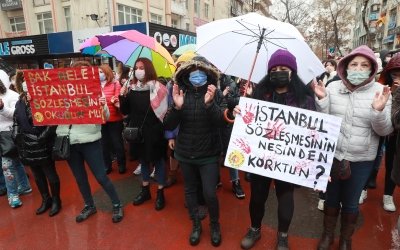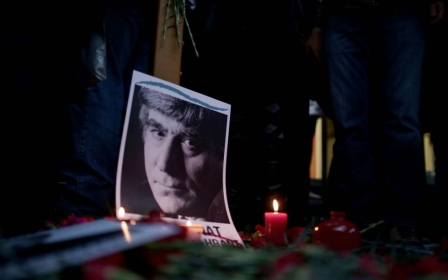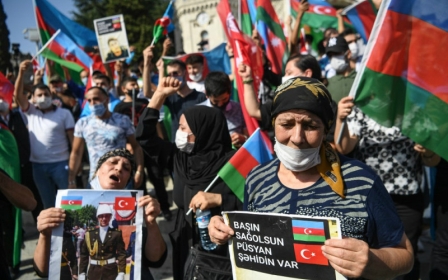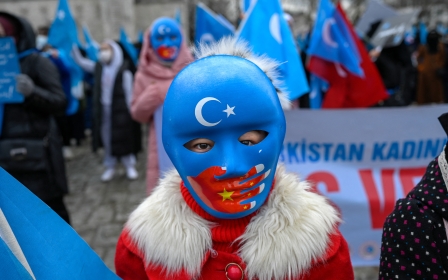Turkey: Former police chiefs among those convicted in murder of Hrant Dink
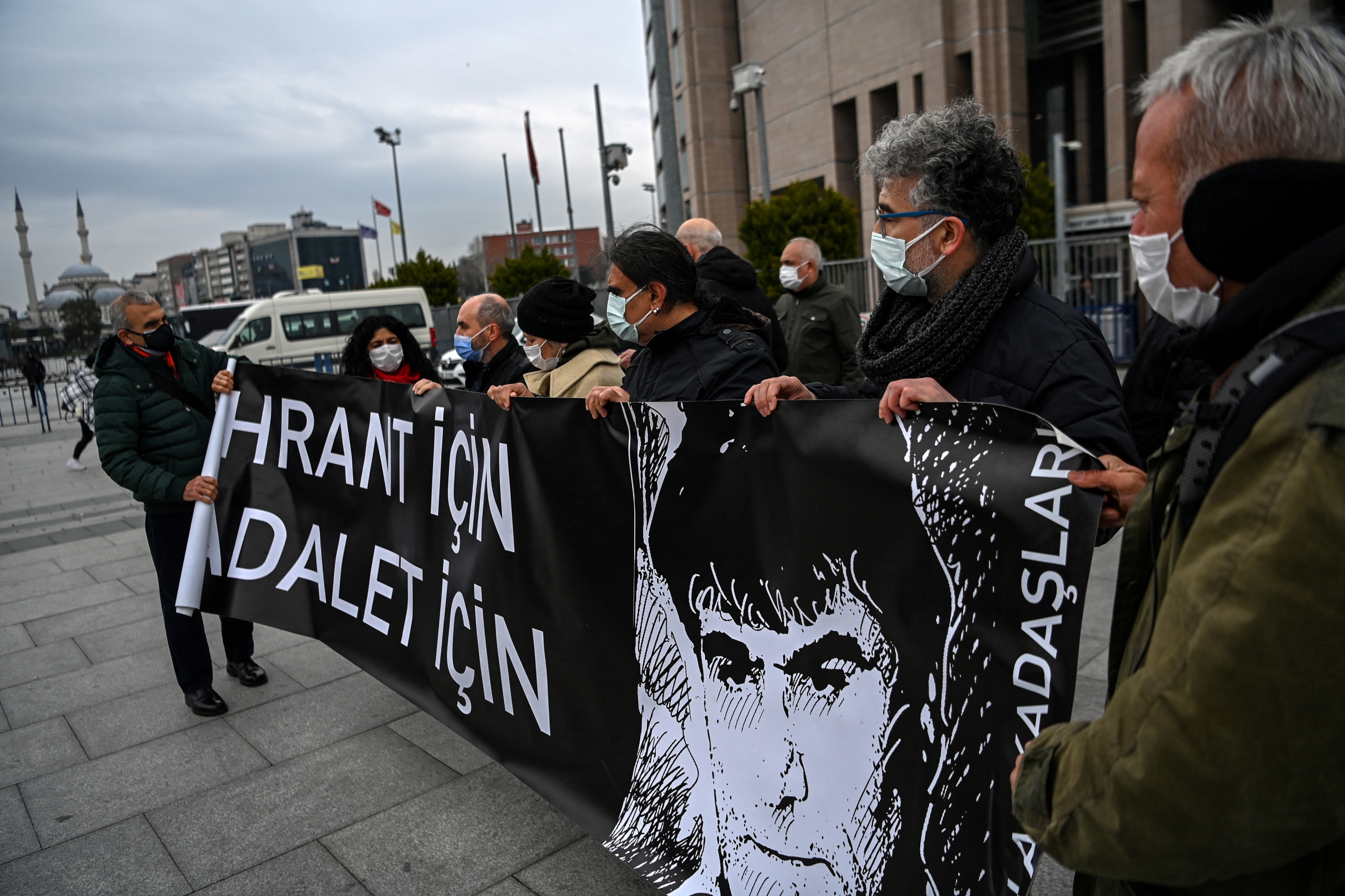
A court in Istanbul has handed down a verdict of six life sentences in the trial over the murder of Turkish-Armenian journalist Hrant Dink, official media reported.
In the trial of 76 defendants, four defendants were sentenced to life imprisonment, two were given aggravated life sentences, an additional 23 were sentenced to jail, while 33 defendants in total were acquitted, according to Anadolu news agency.
Among those sentenced were former police chiefs and security officials.
"Hrant Dink case is not over. This is the third trial and it does not comprise behind-the-scenes actors who threatened him with a statement, threw him before violent groups as an object of hate or failed to act so that he would get killed'
- Erol Onderoglu, RSF
Dink, an outspoken advocate for the rights of Turkey's now small Armenian minority, was shot dead in Istanbul in broad daylight in January 2007. At the time of his murder he had been facing trial on charges of "denigrating Turkishness".
His death sparked a major outcry across the country. Tens of thousands of people, mostly ethnic Turks and Kurds, marched in his funeral, with protesters carrying signs reading "We are all Hrant Dink" and "We are all Armenian."
New MEE newsletter: Jerusalem Dispatch
Sign up to get the latest insights and analysis on Israel-Palestine, alongside Turkey Unpacked and other MEE newsletters
The killing also highlighted Turkey's troubled relationship with its past and the country's failure to acknowledge responsibility for the deaths of up to 1.5 million Armenians in 1915 in what scholars and Armenians have branded a genocide.
Speaking to the news site Bianet, Turkey's Reporters Without Borders (RSF) chief Erol Onderoglu welcomed the ruling, but said it was not the end of the affair.
"[The] Hrant Dink case is not over. This is the third trial and it does not comprise behind-the-scenes actors who threatened him with a statement, threw him before violent groups as an object of hate or failed to act so that he would get killed.
Oderoglu added that the attorneys of the Dink family had made an application to the European Court of Human Rights last year in relation to 20 officials who were potential suspects in the case, he said.
"We, as the RSF, will keep on supporting the Dink family until all these processes leading to the death of a journalist and a person of peace are revealed and all responsible parties are put on trial."
State complicity
Supporters and family of Dink have long argued that there was state complicity in his murder.
Though 17-year-old Ogun Samast was convicted of the crime in 2011, evidence began to seep out indicating that, at the very least, police officers may have been aware of the plot to kill Dink, but did not act.
A video clip released by CNN Turk in 2016 appeared to show Samast posing with a Turkish flag next to a police officer.
Among those convicted by the court on Friday were former police intelligence chief Ali Fuat Yilmazer, who received a jail sentence without parole for murder, and another police chief, Ramazan Akyurek, who was also handed a life sentence.
Both condemned the rulings, speaking in court on Friday. Yilmazer said the court was neither "independent or fair" while Akyurek said his "innocence is so apparent that it can be understood by everyone".
Prosecutors said those convicted were linked to the movement of US-based cleric Fethullah Gulen, an ally-turned-enemy of the ruling Justice and Development Party (AKP) who the government blames for a 2016 coup attempt.
Supporters of Gulen are regularly referred to as belonging to the Fethullahist Terror Organisation (FETO) in Turkish media, and were accused of infiltrating numerous state institutions in Turkey, including the courts, police and civil service over several decades.
Gulen was listed as one of 13 fugitives from justice among the defendants on trial in the case. However, the court did not rule on the case of Gulen and the other 12 fugitives, instead separating their cases.
Akyurek denied being a supporter of the group in court.
"I was arrested in February 2015 and brought to Silivri [prison]. My professional life of 38 years ended as well," he said.
"I worked in counter-terrorism all through my life. We, as a family, know what terror is, I was targeted by terrorist organisations before."
Middle East Eye delivers independent and unrivalled coverage and analysis of the Middle East, North Africa and beyond. To learn more about republishing this content and the associated fees, please fill out this form. More about MEE can be found here.


